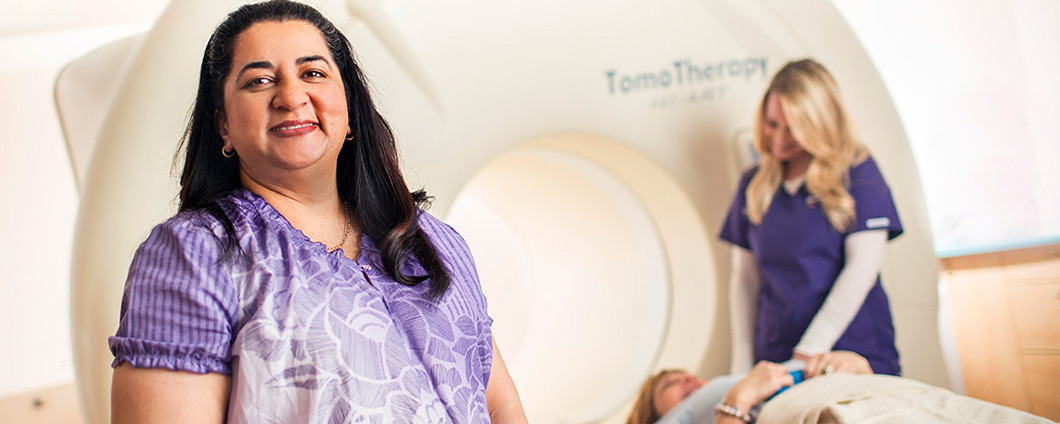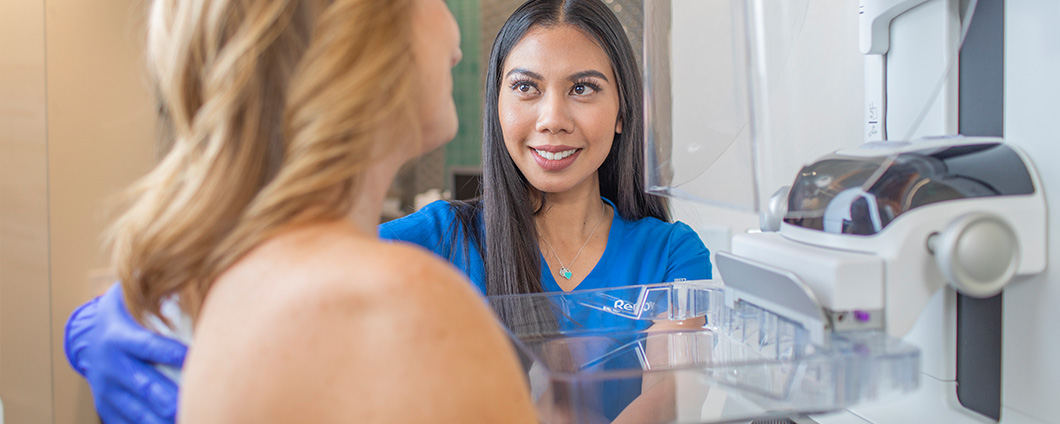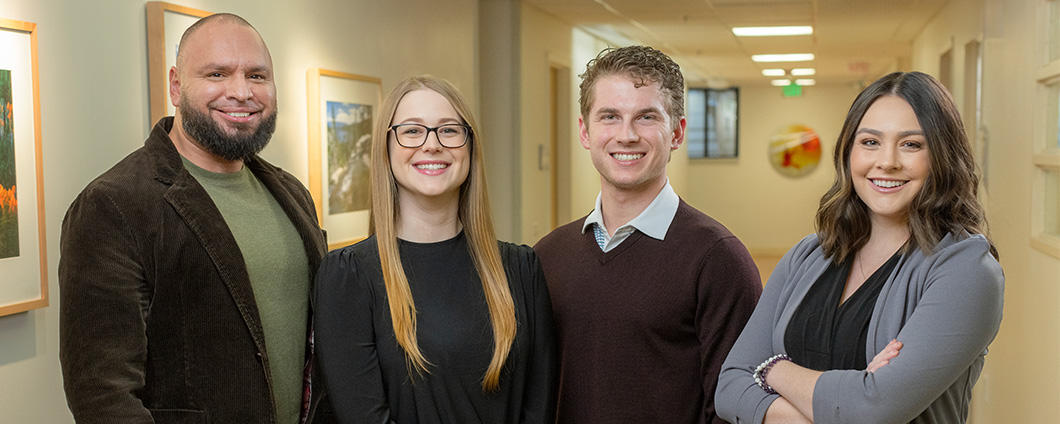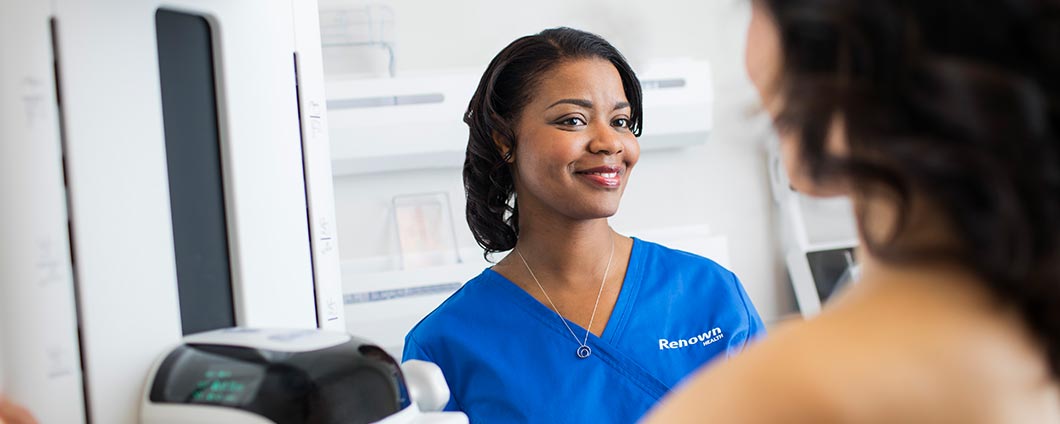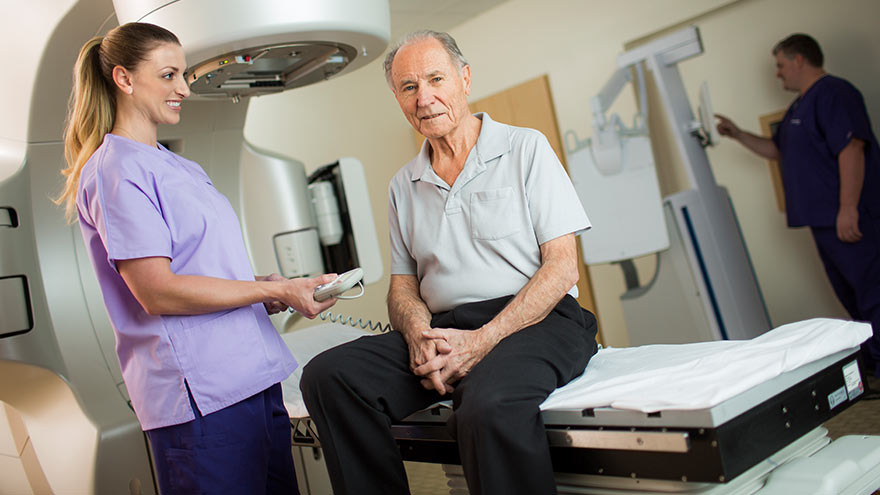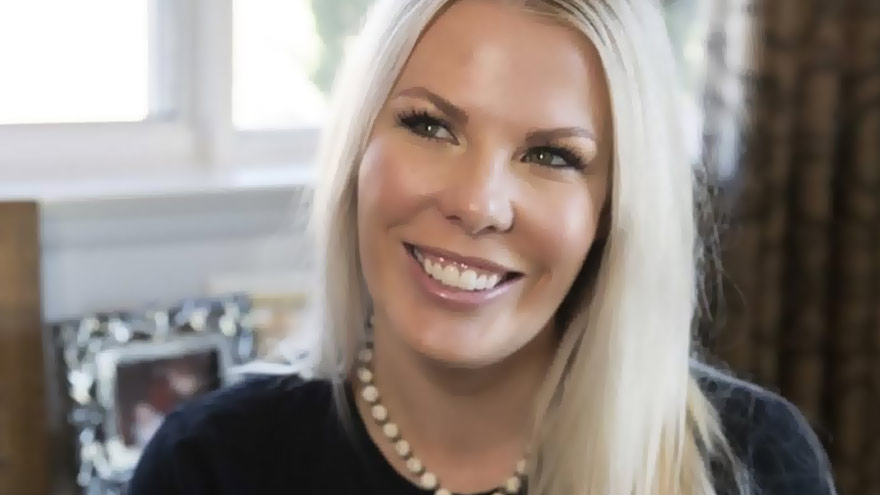Search
Results for 'forms'
Clear-
Colorectal Cancer
Colorectal Cancer Screening & Prevention Colorectal cancer is the second-deadliest cancer in the United States, partly because it often goes undiagnosed. Polyps can develop in the colon or rectum and become malignant without presenting any symptoms. Therefore, knowing and addressing your risk factors and undergoing the recommended screenings is crucial. Colorectal cancer affects both men and women. Even if you have no personal or family history of colon cancer, ask your doctor about colorectal risk factors and when to start screening. With regular screening, colorectal cancer is easily detectable and treatable.
-
Breast Cancer Screening & Diagnosis
Why Choose Renown? Should breast cancer be detected from your screening, your radiologist will present your case at our Breast Cancer Tumor Boards. This meeting gives the radiologist, cancer specialists, genetic specialists, nurse navigators, nurses, social workers and other providers the opportunity to review your case and develop a comprehensive treatment plan early in diagnosis. A registered oncology breast nurse navigator is available to serve as your ongoing resource from diagnosis through treatment and during survivorship. The William N. Pennington Cancer Institute earned accreditation from National Accreditation Program for Breast Centers (NAPBC). Alongside the Renown Breast Health Center, we have skilled medical professionals with a multidisciplinary approach to breast cancer treatment and care, and the latest early detection technology to save lives. Breast cancer begins when abnormal cells in the breast grow out of control forming tumors that can spread to surrounding tissue and move to other parts of the body. If initial screenings indicate that breast cancer may be present, your doctor will conduct further tests to confirm a diagnosis. Talk to your doctor if you notice changes in your breasts, such as: A lump or thickening in/near the breast, underarm or around the collarbone A change in the size or shape of the breast A change in the color or feel of the skin of the breast or nipple area (such as dimples, puckering, redness, swelling or scaliness) Clear or bloody nipple discharge Changes in the nipple, such as an open ulcer, a new inverting of the nipple or unusual tenderness
-
Understanding the Risks of Colon Cancer
Colorectal cancer is the second-deadliest cancer in the United States – largely because it goes undiagnosed. Dr. Christi Matteoni, Division Chief of Gastroenterology at Renown Health, discusses the symptoms and key screenings used to detect this type of cancer, along with risk factors and lifestyle changes that could affect the likelihood of getting the disease. What are some of the signs and symptoms of colorectal cancer? Many cases go undiagnosed because polyps can develop and become cancerous without any symptoms. Additionally, since colorectal cancer begins as small polyps, symptoms usually aren’t seen until later stages. This is why screenings are especially important. For those who do experience symptoms, the signs are often tied to your bowel habits. This can include changes such as constipation or diarrhea, narrow or dark stool, rectal bleeding, abdominal cramping, weakness and fatigue or unintended weight loss. What are some of the risk factors associated with this type of cancer? There are risk factors that can and cannot be controlled. Uncontrollable factors include age, race, personal and family histories as well as certain genetic syndromes that are important to discuss with your provider. This type of cancer is more common in people over the age of 50, African Americans and those of eastern European Jewish (Ashkenazi) descent. This type of cancer is also more common in those who have been diagnosed with polyps, Crohn’s disease, ulcerative colitis and long-term inflammatory bowel disease. important to discuss any of these risk factors with your provider. There are also lifestyle factors that can help reduce your risk. Factors include being overweight, having a diet high in red and processed meat, as well as smoking and consuming excess alcohol. Conversely, diets high in fruits and vegetables and a regular exercise routine can help lower your risk. If someone has some of these risk factors, what should they do? Do they need to get tested? If you are 45 or older and have any of these risk factors, we recommend you speak with your primary care provider about a formal colorectal risk assessment. The most common form of screening is colonoscopy. This screening lets your doctor examine the length of your colon, map out any potential problem areas and remove polyps. For most people, colonoscopies are recommended every 10 years starting at age 50. However, depending on your results and risk factors, you may need to begin screening sooner or get screened more frequently. What do diagnosis and treatment look like for this type of cancer? There are several diagnostic options for colorectal cancer, including endoscopic ultrasound; CT, MRI and PET scans; and biopsy and pathology reports. These technologies allow your doctor to get images of your colon and evaluate what treatment is needed, as well as how the treatment is progressing. Treatment varies for each individual working with their doctor. In the case of colorectal cancer treatment, the William N. Pennington Institute for Cancer offers chemotherapy, radiation therapy, surgery and clinical trials.
-
From Cancer Survivor to Caregiver
Meet Haley Carroll Being a new nurse comes with many challenges and gaining experience is a journey, but Haley Carroll’s first day on the job was far from her first day in a hospital. Haley was diagnosed with lymphoma right before her senior year of high school, and she was declared cancer-free on December 2, 2015. Inspired by the incredible care she received during her cancer treatments and during her time at Renown Children’s Hospital, Haley enrolled in nursing school at the University of Nevada, Reno. She graduated in December 2020, just five years after beating cancer. “I’ve always been interested in nursing,” Haley says. “But once I was diagnosed and began to see everything that my nurses did for me, I knew that that’s what I wanted to do for patients, too.”
-
Cancer Clinical Trials and Research
The William N. Pennington Cancer Institute is dedicated to find the causes of cancer and develop better treatments. We research a wide variety of areas. We perform traditional research in the laboratory and translational research with patients, and we look at how we provide counseling and support and clinical trials, in which patients have the option to try new therapies. We partner with research institutions, including local researchers at the University of Nevada Reno (UNR) and the Desert Research Institute (DRI), national and international researchers, non-profit organizations, and industry to help drive discoveries forward quickly. Cancer Clinical Trials & Research Participating in cancer clinical trials and research allows you to receive the most effective therapy available. These treatments investigate promising new drugs, drug combinations, advances in personalized care, and new approaches to surgery or radiation therapy otherwise unavailable. To join a clinical trial, talk to a member of your cancer care team. They will know about any current trials for your type of cancer, explain your role in the preparation, and provide information about your protection. Trial participants usually receive the therapy at little or no cost. If you are considering a trial, consult with your primary care doctor. At William N. Pennington Cancer Institute, we want to provide our patients with the opportunity to access novel treatments through participation in clinical trials. For adult patients, we offer clinical trials through the National Cancer Institute Community Oncology Research Program (NCORP). Dr. Garrett Green, Renown Health department of Radiation Oncology, serves as the Principal Investigator and Liaison for the adult oncology team. For specific information on which trials are currently available at our institution, please call us at 775-982-5050. For children, we offer clinical trials including phase 2 and phase 3 studies through the Children's Oncology Group. Dr. J. Martin Johnston, Chief of Pediatric Hematology/Oncology at Renown Children's Hospital and Senior Investigator, Renown Institute for Cancer, is the Principal Investigator. The Cancer Research Team As the most extensive healthcare system in northern Nevada and eastern California, and in partnership with clinical trial sponsors, the National Cancer Institute, and the Nevada Cancer Research Foundation, we can access dozens of open clinical trials. We are here to provide education and guidance in making decisions about your care and treatment. Our specially trained research teams will help you understand the process and explain what to expect with each visit. We are committed to bringing the highest quality of cancer care to you and your loved ones. To learn more about open clinical trials, please reach out to us with this form.
-
Cancer Screening & Prevention
Early detection plays a crucial role in effectively managing cancer. By undergoing regular cancer screening tests, you can identify the presence of cancerous cells or tumors even before symptoms manifest. It provides an opportunity for timely intervention and increases the chances of successful treatment and recovery. At the William N. Pennington Cancer Institute, your care team is essential in determining which screenings are most appropriate for you and your family based on your medical history, age, and risk factors. They can guide you through the various screening options available and address any concerns or questions you may have. Cancer screening tests encompass a range of examinations, including imaging techniques such as X-rays, CT scans, MRI scans, as well as specific tests like mammograms, Pap smears, colonoscopies, and prostate-specific antigen (PSA) tests. These screenings aim to detect breast, lung, prostate, colorectal, cervical, and other types of cancers. By prioritizing cancer screenings and preventive measures, you take an active role in safeguarding your health. Detecting cancer early significantly increases the chances of successful treatment and improves overall outcomes. Prevention Cancer prevention is a vital aspect of maintaining overall health and well-being. One significant preventive measure is the administration of HPV (human papillomavirus) vaccines. HPV is a common sexually transmitted infection that can lead to several types of cancers, including cervical, vaginal, vulvar, anal, penile, and oropharyngeal cancers. HPV vaccines are designed to protect against high-risk HPV strains responsible for the majority of these infections. By getting vaccinated, individuals can significantly reduce their risk of developing HPV-related cancers. These vaccines are most effective when administered before exposure to the virus through sexual activity. Therefore, early vaccination, ideally during adolescence or early adulthood, is crucial for long-term protection. By prioritizing HPV vaccination as part of comprehensive cancer prevention strategies, individuals can take proactive steps towards reducing the risk of these preventable cancers.
-
Early Detection is Key to Surviving Colorectal Cancer
Colorectal cancer is the number two cancer killer in Nevada, only second to lung cancer, yet it is also one of the most preventable. Still, in 2020, 20.7% of Nevadans said they had never been screened for this deadly disease, according to the Nevada Cancer Coalition. At the start of the COVID-19 pandemic, unfortunately many healthcare services were halted, including colorectal cancer screenings. Those delays in screenings can lead to delays in diagnoses of colorectal cancer, resulting in poorer outcomes. Per the American Cancer Society, if colorectal cancer can be found early the relative 5-year survival rate is approximately 90%. Screening is key, and it is important to engage in preventative care. Even if you have no personal or family history of colorectal cancer, ask your doctor about colorectal risk factors and when to start screening, and if you’re up to date on your screenings, talk to loved ones and make sure they are too. According to the American Cancer Society, most colorectal cancer cases are found in those without a family history. This month let us help raise awareness for colorectal cancer and the importance of routine, life-saving screenings. To learn more, we spoke to Renown Health oncology nurse Christina Alsop, APRN. What is Colorectal Cancer Colorectal cancer is a disease in which the cells in the colon or rectum grow out of control. It usually forms from precancerous polyps, or abnormal growths, in the colon or rectum, which can become malignant without presenting any symptoms. How do Screenings Work Screening tests like stool tests, colonoscopies and others can detect these precancerous polyps, so they can be removed by a physician before turning into cancer. Screening tests can also find colorectal cancer early, resulting in better treatment outcomes. As of 2021, the U.S. Preventative Services Task Force recommends adults begin colorectal cancer screenings beginning at age 45, through 75. Screening methods include a blood stool test, which needs to take place every year or a colonoscopy, which takes place every 5-10 years. Healthy Habits Can Help Stave Off Risk Routine screenings are the only way to determine colorectal health, yet some healthy habits may reduce your risk for colorectal cancer. These factors include maintaining a healthy weight, being physically active, eating a diet rich in fresh fruits, vegetables and whole grains, limiting alcohol intake and not smoking.
Read More About Early Detection is Key to Surviving Colorectal Cancer
-
Prostate Cancer: Symptoms, Treatments and Screenings
Did you know: More than 2.9 million men in the United States who have been diagnosed with prostate cancer at some point are still alive today. Prostate cancer is common, but also treatable, especially when caught early. Dr. Michael Hardacre of the Renown Institute for Cancer explains. With the exception of skin cancer, prostate cancer is the most commonly diagnosed form of cancer in American men. In fact, the American Cancer Society offers these key statistics: About 1 man in 9 will be diagnosed with prostate cancer during his lifetime. Prostate cancer develops mainly in older men and in African-American men. About 6 cases in 10 are diagnosed in men aged 65 or older, and it is rare before age 40. The average age at the time of diagnosis is about 66. The good news: This form of cancer is very treatable when also detected early. Michael Hardacre, MD, radiation oncologist with Renown Institute for Cancer, is here to explain more about prostate cancer screenings and their role in early detection. What is the prostate? The prostate is a gland that only males have, and it makes part of the seminal fluid. Prostate cancer begins when the cells in the prostate gland start growing uncontrollably due to a change in the cell’s genes. Researchers are working to find what leads to the disease. Certain types of prostate cancer are hereditary, or passed on through genes. However, most types of prostate cancer are acquired and developed later in life. What are some of the signs of prostate cancer? Common signs of prostate cancer include: Frequent urination Weak urine flow Painful urination or inability to urinate Blood in urine or semen Painful ejaculation Erectile dysfunction If you notice any of these signs, talk with your primary care doctor. Although it may be intimidating to talk about any of these signs or symptoms, the earlier prostate cancer is detected, the better the options for treatment. How can you screen for or detect prostate cancer? The good news is that prostate cancer can often be found before symptoms appear, because screening is as simple as a blood test. Your doctor will look for levels of a prostate-specific antigen in the blood. If the results come back with anything concerning, then additional testing would be recommended. A transrectal ultrasound can also be used, which is usually painless and only takes about 10 minutes to complete. This exam gives the doctor an image of the prostate to measure its size, which can help determine the density of the prostate-specific antigen. If this test comes back with any suspicious results, then your doctor may recommend a biopsy. What are the treatment options? Depending on each case, treatment options for men with prostate cancer might include: Watchful waiting or active surveillance Surgery Radiation therapy Cryotherapy (cryosurgery) Hormone therapy Chemotherapy Vaccine treatment Bone-directed treatment It’s important to discuss all of the treatment option with your doctors, including goals and possible side effects, to help make the decision that best fits your needs. Some important things to consider when choosing a treatment option also include: The stage and grade of your cancer Your age and also your expected life span Any other serious health conditions you have Your feelings (and your doctor’s opinion) about the need to treat the cancer right away The likelihood that treatment will cure your cancer (or help in some other way) Your feelings about the possible side effects from each treatment Renown Institute for Cancer | 775-982-4000 At the Renown Health Institute for Cancer, our experienced team provides the support and care to maintain the highest quality of life and then achieve the best possible outcome, all in one location that’s close to home. Our dedicated team, clinical expertise and also advanced treatment options allow us to tailor care to each patient. Learn about: Our Team Cancers We Treat Screening and Prevention Treatment Options
Read More About Prostate Cancer: Symptoms, Treatments and Screenings
-
What Is the Importance of Having an Institute for Cancer?
What is an institute for cancer — and why does it matter that we have one right here in Reno? Here, a radiation oncologist answers those questions and more. Sadly, our community health needs assessment shows cancer is the second leading cause of death in Washoe County. But many residents may not know there is an institute for cancer right here in Reno that can care for you or your loved one after diagnosis. Dr. Michael Hardacre, a radiation oncologist with Renown Institute for Cancer is here with more. What is an institute for cancer? The way I like to think of it: An Institute has healthcare providers highly trained in patient-centered care. For example, when you have cancer, many times you’ll see a lot of doctors. A program brings those doctors together — so you really have one team working together. An Institute takes that one step further. Say there are other needs beyond the doctor’s office such as nurse navigators, dietitians, physical therapists to help you get on track, etc. An Institute really proactively thinks of the need of the cancer patient. It then makes sure all those things are available to them throughout their treatment. The term “institute for cancer” identifies a cancer program that is comprehensive and multidisciplinary in nature. For Renown, that means that we have the specialists in medical oncology, surgical oncology and radiation oncology working together with other specialists to assure that a patient has coordinated care throughout the entire treatment course of cancer care. Together with cancer prevention and diagnostics, genetic assessment, supportive care, clinical trials, and cancer survivorship, the institute for cancer provides care for the community, families and patients along the entire spectrum of cancer care. What types of cancer do you treat? We’re fortunate to be able to provide cancer treatments for all types of cancers, and we’re one of the major referral centers for northern Nevada. Most commonly, just like much of the country, lung cancer, prostate cancer and breast cancer are the most frequent we see. Our care spans brain, to neck cancer and everything in between. As an accredited comprehensive community cancer program, Renown Health provides services for all cancer types. The highest volume cancers treated at Renown are breast, colorectal, lung, genitourinary, blood and gynecologic cancers. Most treatments can be done right here in Reno, but when there are specialty needs such as stem cell or bone marrow transplantation, we partner with quaternary centers, like Stanford, to assure a smooth transition of care both to and from the quaternary center. What kinds of care and treatments are offered? We offer a wide range of comprehensive care. We treat the cancer itself — surgical, radiation oncology, medical oncology in the form of chemotherapy or pills. Also addressed: dietary needs, physical therapy and navigation through this whole process. People may be surprised by the scope and scale of the Renown Institute for Cancer. For instance, our Radiation Center has the latest technologies to treat cancers. This includes the Linear Accelerators, which are machines with treatment planning software tools. In addition to the traditional external radiation treatments provided in most centers, Renown performs specialty treatments using High-Dose Brachytherapy, a treatment with an active radiation “source” and in Brain Stereotactic Radiosurgery, assuring that patients can stay right here in northern Nevada — close to home. What does that mean for the quality of care? I think it’s always great in any environment to have external people come into your program and not only share what’s happening nationally and what we could do better, but also to validate “are you doing things at the highest level you can?” That accreditation process is just one way to give us that seal of approval. We’re lucky enough this year to get the gold award by the American College of Surgeons — its highest honor. We were honored to receive it. Why is important that you’re an accredited institute? Accreditation assures our community that quality is a top priority for us. Each of the accrediting bodies has a set of standards that identify service and quality standards. Renown Institute for Cancer has the following accreditations: American College of Surgeons’ Commission on Cancer: Full Cancer Program accreditation, standards address issues from cancer prevention/diagnosis to treatment to survivorship and/or end-of-life. Renown received the Gold Level Accreditation in 2018, the highest level of accreditation possible; American College of Surgeons’ National Accreditation Program for Breast Centers: Full Breast Center/Program accreditation, standards address issues from breast cancer prevention/diagnosis to treatment to survivorship and/or end-of-life; American College of Radiology – Radiation Therapy: Full Radiation Oncology accreditation for radiation equipment, treatment planning, treatment and treatment follow-up; and American College of Radiology – Mammography Services.
Read More About What Is the Importance of Having an Institute for Cancer?
-
Woman With Family History of Cancer Taking Action Today
With a family history of breast and other cancer, Aime′ Landaburu isn’t missing a single health screening. She recently had her first mammogram as well as a whole breast ultrasound, which detects 41 percent more cancers and reduces the number of false-positive results. Like many people, Aime′ Landaburu is busy juggling parenthood and a career. It would be easy to put health screenings on the back burner, but with a grandmother who has survived breast cancer three times and a grandmother who had ovarian cancer, Landaburu is addressing her family health history head-on. “I decided at 35 that I needed to get my screenings done because I have my family history of both grandmothers having had cancer,” Landaburu says. “In addition to the mammogram, I was really interested in doing the whole breast ultrasound. It is the same price as getting my hair done and it’s potentially something that could save my life.” Landaburu says the procedures were painless. “It was really comfortable, and the techs were all so nice and kind and gentle and explained things along the way.” Breast Screening Technology Provides Greater Insight George Krakora, MD, lead radiologist for Renown’s Breast Health Center, says the new 3D imaging for mammograms is picking up subtle cancers that would not have been seen with the previous 2D imaging. “It’s an additional tool that helps find those subtle cancers that may be missed in dense breasts,” Dr. Krakora says. With the whole breast ultrasound, the tech screens for masses — which are often obscured on the mammogram X-ray. Studies show it detects an additional 2 to 3 cancers per 1,000 women that would not have been detected with routine mammography. “Aime′ was noted to have heterogeneous dense breast tissue. That puts her at a little higher risk for cancer and also limits the sensitivity of mammography,” Dr. Krakora says. Multiple Ways to Screen for Breast Cancer However, Dr. Krakora notes, breast ultrasound is not a substitute for mammography, which can detect calcifications that can represent the earliest forms of cancer.” Surprisingly to Landaburu, her results came in just three days. “It’s so important to know what’s going on in your body. I was really nervous when I first got the paperwork, but ultimately it was negative, “ Landaburu says. “I’m thankful it was good and I have a baseline for the future.” Landaburu also advises other young women with a history of breast cancer to proactively communicate. She says it’s important to reach out to women they know who have survived breast cancer. “You have to take the first step and you want to be around for your kids and your family and yourself,” she says. “So utilize your resources, educate yourself and go get screened.” Breast Cancer Screening and Prevention Breast cancer begins when abnormal cells in the breast grow out of control. These cells form tumors that can grow into the surrounding tissue and spread to other parts of the body. Breast cancer occurs mostly in women, but men can also develop breast cancer. To schedule a mammogram or whole breast ultrasound, call 775-982-8100, or schedule an appointment online. Make an Appointment
Read More About Woman With Family History of Cancer Taking Action Today
-
Nourishing Your Loved One Through Cancer Treatment
Eating healthy is a daily challenge for many, but for those with cancer, it is an even harder struggle. A cancer diagnosis affects not only those diagnosed but family members and friends, too. One key area of concern is making sure your loved one stays well by eating healthy food every day. Here are some vital cancer nutrition tips from Jessica Blauenstein, a Board Certified Specialist in Oncology Nutrition and Registered Dietitian at Renown Health. Help to Prepare Meals and Snacks for Daily Cancer Nutrition Make it grab and go. Easy-to-make meals help reduce the burden of having to cook and prepare food. Having easy to grab snacks on the counter or in the fridge can help ensure your loved one has access to those nutrients when needed. Sit outside of the kitchen. This allows your loved one to avoid cooking smells which can make them feel sick as a side effect of cancer treatments. Also try serving them cold foods such as sandwiches, cheese and crackers, or shakes which have a mild scent. Try drinkable meals. Some people with cancer find it easier to sip their calories over the course of 30 minutes to an hour. Consider smoothies or supplemental shakes such as Ensure Complete, Fairlife shakes, Orgain shakes, or Boost Plus to name a few. A great foundation for a smoothie is a protein source (Greek yogurt, protein powder, nut butters or milk) with a carbohydrate (fruits, juice or berries). Add other ingredients as desired, such as spinach, kale, and ground flaxseed or chia seeds to give it more vitamins, minerals, and fiber. Snack Ideas for Those Undergoing Cancer Treatment The following ideas are both quick and easy to make for your loved one. Chicken or tuna salad with whole grain crackers or as a sandwich on whole grain bread Greek yogurt mixed with cereal, fruit and/or nuts Cottage cheese with banana, cinnamon and/or peanut butter Favorite fruit with 100% natural peanut or almond butter spread - Try peanut butter with bananas, apples, or even celery Their favorite veggies dipped in a salad dressing of your choice - For example, carrots with hummus, tahini, or ranch dressing Cheese and whole grain crackers - Add tomato slices with a small amount of avocado, and a dash of oregano on top for more flavor Eggs scrambled with cheese, vegetables and/or salsa Peanut butter and jelly sandwich on whole grain bread A baked sweet potato with some favorite toppings Hard boiled eggs and/or egg salad with whole grain crackers, or as a sandwich on whole grain bread Oatmeal or cream of wheat prepared with milk, fruit and/or nuts Sometimes your loved one may not feel like eating or refuse to eat. If treatment side effects are impacting your loved one’s ability to eat, please visit the websites below containing recipes tailored to treat side effects. Cook for Your Life ELLICSR Of course, you may also consult a registered dietitian and/or the patients care team, if you have more cancer nutrition concerns.
Read More About Nourishing Your Loved One Through Cancer Treatment
-
Breast Oncologist for Women's Breast Center in Reno/Tahoe
Full Time - Eligible for Benefits510701 AdministrationVaries
